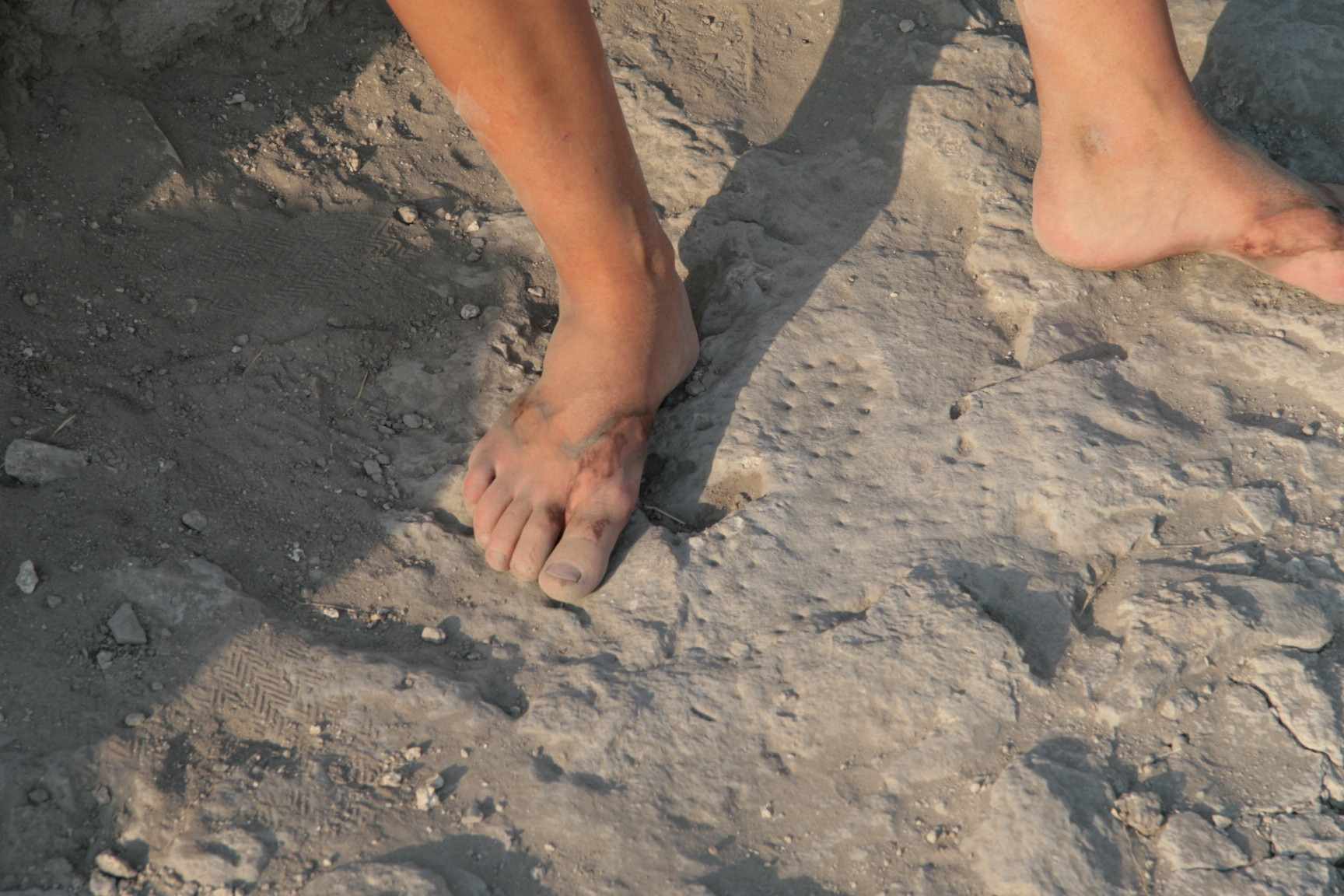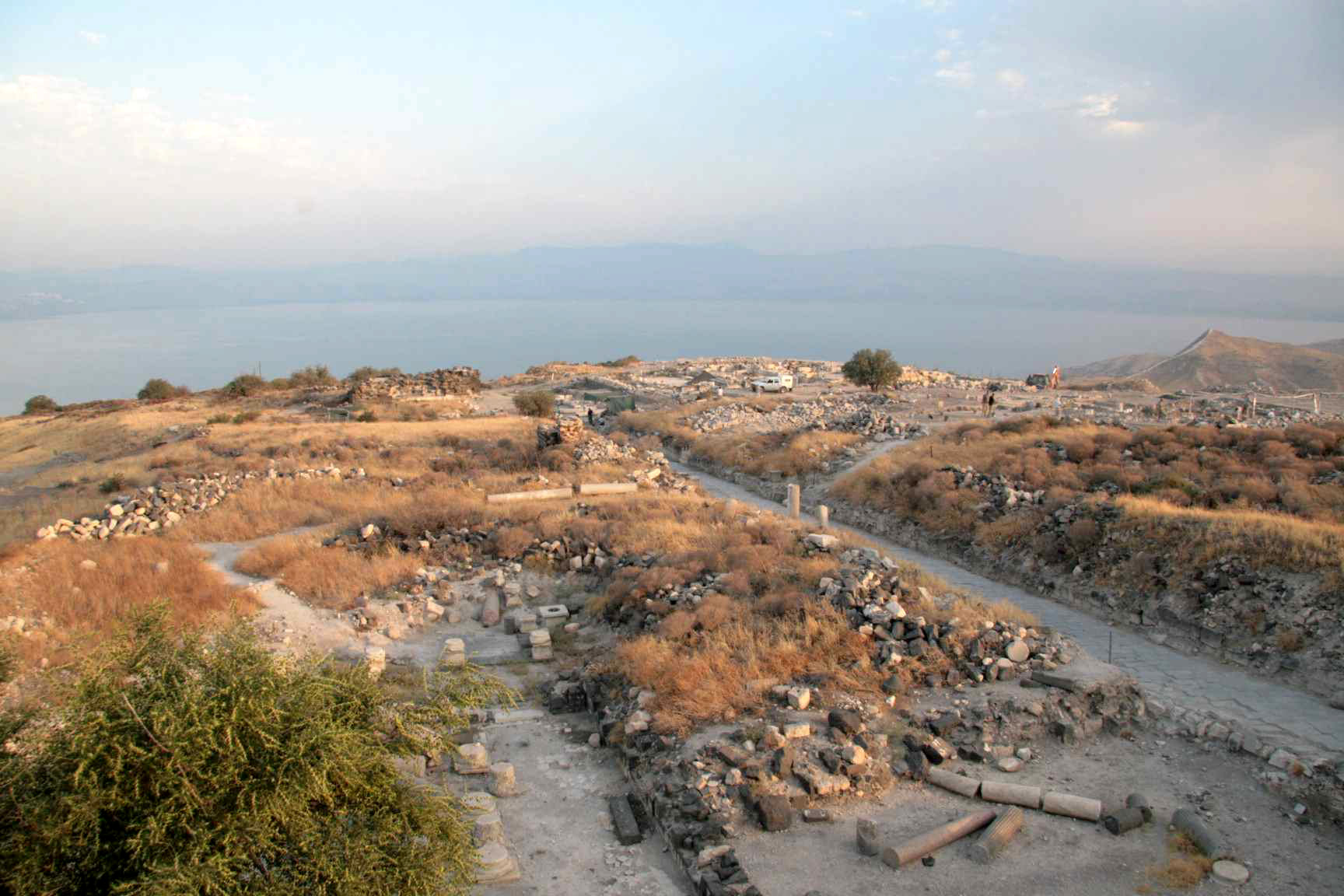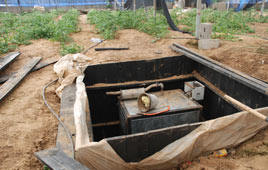Looking
for High Holiday services? See
Calendar listings
Sept. 12-14
San Diego Jewish World
Thursday evening-Friday,
August 23-24, 2007
Vol.
1, Number 115
|
Archives Event Tracker HOME Jewish Directory Jewish Grapevine Jews in the News News Sleuths Sports |
| Names of government officials from the Jewish community are printed in bold face type |
| PLEASE SUPPORT OUR ADVERTISERS; THEY ARE HELPING TO BRING San Diego Jewish World TO YOU: ●America's Vacation Center ●Congregation Beth Israel ●Humanistic Jewish Congregation ●I'm There For You Baby radio show ●In the Know radio show ●JCC Maccabi games ●Jewish American Chamber of Commerce ● Jewish Community Foundation ●Jewish Family Service ●Journey to the copper age ●Ohr Shalom Synagogue ●Old Town Trolley Tours of San Diego ●San Diego Community Colleges ●San Diego Jewish Academy ● Seacrest Village Retirement Communities ●Tifereth Israel Synagogue |
Feinstein calls for resignation of Iraq's Al-Maliki
PALMDALE, California (Press Release) – In response to a question during a press availability at a Northrop Grumman plant here, U.S. Senator Dianne Feinstein (Democrat, California) today called for Iraqi Prime Minister Nouri al-Maliki to resign as head of the Iraqi government.The following is a transcript of Senator Feinstein’s remarks:
“My own view is that he should resign. The problem is who would replace him, what does that mean, and what are the implications?
San Diego Jewish World
Israel and Middle East |
I think Maliki has been a failure. Parliament doesn’t show up for work. The ministers walk out. And he can’t meet the benchmarks he set for himself. There are Shia against Shia, and Shia against Sunni. Iraq has become very destabilized and the leadership is not adequate. So, my view is that he should resign.” NIE Assessment on Iraq An unclassified summary of a National Intelligence Estimate (NIE) on Iraq released today notes “measurable but uneven improvements” regarding the security situation in Iraq, but raises troubling questions about the ability of Prime Minister Maliki and his government to facilitate political reconciliation and unify the country. Among the new NIE’s findings: To date, Iraqi leaders remain unable to govern effectively. The Iraqi Government will continue to struggle to achieve national-level political reconciliation and improved governance. Broadly accepted political compromises required for sustained security, long-term political progress, and economic development are unlikely to emerge unless there is a fundamental shift in the factors driving Iraqi political and security developments. The Iraqi Government will become more precarious over the next 6 to 12 months because of criticism by other members of the major Shia coalition (the Unified Iraqi Alliance, UIA), Grand Ayatollah Sistani, and other Sunni and Kurdish parties. The NIE assessment is based on the analysis and findings of the 16 agencies that comprise the U.S. intelligence community and provides projections over the next 6 to 12 months. The preceding story was provided by the office of U.S. Sen. Dianne Feinstein |
|
Lieberman, without mentioning Feinstein by name, defends
Al-Maliki; says Al Qaeda waiting in wings
WASHINGTON, DC (Press
Release)-- Senator Joseph Lieberman (Independent, Connecticut)
today issued the following statement in response to recent Congressional
attacks on the Iraqi government:
"As even many critics of the Iraq war now acknowledge, General Petraeus'
counterinsurgency strategy is making real and significant progress in
our fight there. Whereas a year ago, al Qaeda in Iraq controlled large
swaths of territory, it is now being driven out of its former
strongholds in Anbar and Diyala provinces by the surge in U.S. forces
and their increasingly capable Iraqi allies. Whereas a year ago,
sectarian violence was spiraling out of control in Iraq, it is now being
damped down, and the militias that once terrorized Baghdad are being
rolled back. Whereas a year ago, Iraq's Sunni Arab community was largely
allied with the insurgency, more and more Sunnis are coming over to our
side, to fight against al Qaeda.
"Forced by facts on the ground to acknowledge the progress of the
American and Iraqi militaries since the new surge strategy started, some
of these opponents of the war are now turning their harshest criticism
on our allies in Iraq instead of our enemies. This is a mistake.
Whatever the shortcomings of our friends in Iraq, they are not an excuse
to retreat from the real enemies who threaten our vital national
interests there.
"I share the frustrations about the performance of the Iraqi government.
But the fact is, as my colleagues know, Ambassador Crocker and General
Petraeus are meeting every day with Iraq's democratically-elected
leaders to help them reach compromise and reconciliation on a range of
complex, painful, and existential issues. Political progress in Iraq
depends on this kind of steady statecraft and patient diplomacy on the
ground in Baghdad, rather than scapegoating and congressionally-ordered
coups.
"Ironically, it was not so long ago that many in Congress criticized the
Bush administration for what they described as its heavy-handed and
patronizing treatment of our most important allies in the world. Now
many of those very critics make the exact same mistake in their
treatment of the Iraqis, whose citizens--lest we forget--are fighting
and dying every day in the struggle against al Qaeda, and in far higher
numbers than any other nationality.
"Ultimately, the choice we face in Iraq is not between the current Iraqi
government and a perfect Iraqi government. Rather, it is a choice
between a young, imperfect, struggling democracy that we have helped
midwife into existence, and the totalitarian, terrorist regime that al
Qaeda hopes to impose in its place, should we retreat.
"Indeed, while it is true there is no pure "military" solution to the
violence in Iraq, it is worth remembering that neither is there any pure
"political" solution. Al Qaeda in Iraq and other irreconcilable
extremists must be defeated and destroyed in order for Iraq to be stable
and free, and for the United States to be safe. Al Qaeda is not mass
murdering hundreds of Iraqi civilians in suicide bombings because the
Iraqi government hasn't made enough progress toward political
reconciliation, but because al Qaeda is determined to destroy any hope
of political reconciliation.
"We have made enormous progress in defending and advancing America's
vital national interests in Iraq over the past six months against our
two deadliest enemies in the world—-al Qaeda and Iran. Realism requires
that we recognize these gains, not dismiss or disparage them--and that
we distinguish between our allies in Iraq, and our enemies."
(Return to top)
Israel releases a
chronology of rocket firings,
military skirmishes since Hamas took over Gaza
JERUSALEM (Press Release)—After Hamas completed its
takeover of the Gaza Strip in mid-June 2007,
terrorist groups there have carried out rocket and
mortar fire toward Israel’s western Negev
settlements. During the last two weeks in June, 61
rocket hits were identified. A number of Israeli
civilians were lightly wounded in the attacks, and
several more were found to be suffering from shock;
property was also damaged.
During July, rockets continued to be fired at western Negev communities from the Gaza Strip. There were 55 identified rocket hits in Israeli territory. Noteworthy are the following rocket attacks:
July 22: A rocket hit the Sapir College near Sderot, slightly wounding an Israeli woman.
July 23: There was a direct rocket hit on a house in Kibbutz Carmia. An eight-month-old baby girl was slightly wounded and her mother and grandmother had to be treated for shock; considerable damage was done to the building.
July 26: A rocket hit a house in Sderot, slightly wounding a woman and causing considerable property damage.
July 27: A rocket was fired and struck a community in the western Negev, Palestinians fired two mortar shells which hit close to security fence in central Gaza, and two additional mortar shells hit in a community in the western Negev. Following the incident a fire erupted at the site.
There was also a marked increase in the number of mortar shells fired at IDF forces – during the first half of July, 42 mortar shells were fired, compared with 37 in June. The mortar shells were fired at IDF forces operating in the Gaza Strip, at the crossings and at Israeli towns and farms close to the border fence.
The Palestinian Islamic Jihad and Fatah elements (which continue operating under Hamas aegis) claimed responsibility for most of the attacks, yet on July 7, Hamas itself began claiming responsibility for rocket fire, the first time since the beginning of June.
During August, rocket fire aimed at the western Negev settlements continued at an even higher rate. During the first two weeks of August, 34 rockets were fired, compared with 23 during the first half of July. One of the rockets hit a kindergarten in Sderot, which was empty at the time due to the summer vacation.
Since the Hamas takeover of the Gaza Strip in mid-June, there has been an average of 13 rockets a week . (Jump to continuation)

(Return to top)
Israel's Foreign Ministry calls on other countries to
share in the resettlement of Darfur refugees
(Editor's Note:
Israel’s Ministry of Foreign Affairs responded today to
criticism about its policy to accept no more Darfur
refugees with the following statement)
JERUSALEM (Press Release)—Israel has a unique historical
experience in dealing with people who are fleeing
genocide. There is a special sensitivity to these sorts
of issues in Israel, and as a result we have taken the
extraordinary step of deciding as a country to absorb
500 refugees fleeing the terrible murder in Darfur. We
call upon other members of the international community,
other countries, to take similar steps in finding
places, finding a safe haven, finding permanent homes
for the people who are fleeing the genocide in Darfur.
Obviously the issue of the Darfur refugees is a problem
for the entire international community. No one can
expect that Israel alone can be the solution for all the
Darfur refugees, and we urge the international community
to act decisively. Israel is willing to play her part in
the framework of international efforts.
Israel is fully aware of the tragedy in Darfur. The
State of Israel, as the homeland of the Jewish people
who have suffered tremendously from persecution, cannot
remain indifferent to the suffering of others and has
expressed deep concern regarding the Darfur tragedy.
The government of Israel has actively joined the efforts
of the international community in providing aid to the
victims of the crisis.
The Israel Ministry of Foreign Affairs initiated a
relief program for the Darfur and Sudanese refugees. In
addition to the aid provided through Israeli civil
organizations to those seeking asylum in Israel, as part
of Israel's integration into the global effort, Israel
contributes products and equipment through UN agencies
in order answer needs on the ground. These consist
primarily of water purification systems, medicines and
medical equipment. The second channel funnels assistance
directly to the refugees of the Kakuma refugee camp in
Kenya, where Israeli eye surgeons operated on dozens of
patients during the first half of July.
A few hundred asylum-seekers have arrived in Israel from
Sudan. Israel is not sending any of them back.
To date, the Israeli government has decided to absorb
500 asylum-seekers from Darfur within Israel. While the
status of these people in Israel is still unclear, we
are making a great effort to make their stay in Israel
less difficult. The vast majority are housed in
civilian-assigned residences. They are working and
earning money to send to their family members remaining
in Sudan.
At the same time, we must remember that these
asylum-seekers come to Israel from a country with which
Israel has no diplomatic relations, a country where
there is a significant presence of Al Qa'eda operatives.
Therefore, we must examine each and every one of them
and make sure that they do not pose a security threat.
Once this is established, Israel is willing to take part
in finding a multilateral solution to the problem.
Israel cannot be the sole solution to the question of
Sudanese asylum-seekers. We are working together with
international organizations and other countries in an
attempt to find a longer-term solution and have
established an inter-ministerial committee to look into
the matter. We call on our friends in the international
community to join forces with Israel in providing a
solution.
Of the 46 infiltrators returned to Egypt on 19 August,
42 were Sudanese nationals, 3 citizens of the Ivory
Coast and one a Somali national. They were returned, in
accordance with the
Olmert-Mubarak agreement,
under the supervision of the UN Refugee Agency, and on
condition they would not be returned to Sudan.
The preceding article was provided by Israel's Ministry of Foreign Affairs
 |
  |
ARCHAEOLOGICAL SITE—Sussita,
the ancient site of Hippos, looks down on the Sea of
Galilee from the east. Pictured are the site from above,
some glassware found there, and the impression of an
ancient Roman sandal.
Photos courtesy of the University of Haifa
Excavations yield glassware, imprint of Roman sandal, at
site on plateau east of the Sea of Galilee
SUSSITA, ISRAEL (Press Release)—Archaeologists have
discovered a footprint made by the sandal of a Roman
soldier in a wall surrounding the Hellenistic-Roman city
of Hippos (Sussita), on the Golan plateau east of the
Sea of Galilee.
The footprint was discovered during this eighth season
of excavation, led by Prof. Arthur Segal from the Zinman
Institute of Archaeology at the University of Haifa in
conjunction with archaeologists from the Polish Academy
of Sciences and Concordia University in St. Paul,
Minnesota. "This rare footprint, which is complete and
well preserved, hints at who built the walls, how and
when," said Michael Eisenberg of the Zinman Institute at
the University of Haifa.
The print, made by a hobnailed sandal called caliga, the sandal worn by Roman soldiers, is one of the only finds of this type. The discovery of the print in the cement led archaeologists to presume that legionnaires participated in construction of the walls.
The excavations of this section of the southern city walls also revealed towers and well-protected structures for positioning weapons such as catapults and ballistae built into the wall.
The ancient city of
Hippos (Sussita), at 350 meters above sea level,
overlooks the Sea of Galilee. The city was established
during the period of Seleucid rule. It flourished during
the Roman and Byzantine periods until it was destroyed
by an earthquake in the year 749.
Hippos (Sussita), together with Beit Shean and other
cities east of the Jordan River, formed the "Decapolis",
the area in which Jesus performed most of the miracles
described in the New Testament. "The remains of Sussita,
its view of the Golan Heights and the Galilee and its
historic significance in Christianity, have made it one
of the most attractive sites in northern Israel," said
Prof. Segal.
This season's excavations
have uncovered additional, important finds: the city's
colonnaded street, some 240 meters long; a magnificent,
marble-paneled bathhouse; and a glass bottle with an
embossed face. On the final day of the dig another
unusual find was uncovered: part of a white marble
statue, a hand holding a staff, apparently part of a
Greek god. The archaeologists are hopeful that during
the next digging season they will find other pieces of
the statue which is estimated to be 2 meters high.
The preceding
story was provided by the University of Haifa
(Return to top)

Alternative energy from the sea is goal
of new School of Marine Sciences at University of Haifa
HAIFA (Press Release)—The University of Haifa, in
cooperation with Stanford University, is embarking on a
unique, wide-ranging research effort to investigate
energy production using a gas lying just below the sea
floor, as an alternative to oil. The initiative will be
conducted in the new School for Marine Studies at the
University of Haifa, whose establishment was made
possible through the generous donation of American
businessman Mr. Leon Charney.
"One
of the primary goals of the school is to evaluate the
possibility of turning gas lying at the sea floor into a
valuable economic resource in order to eliminate
dependence on oil and change the geo-political reality
in the world," said Mr. Charney, who donated an initial
$8 million for the establishment of the School of Marine
Sciences which will bear his name. Mr. Charney envisions
turning this School at the University of Haifa into a
world leader in research in this field.
"At a time when the entire world is concerned about the future of the planet, the University of Haifa is spearheading new research on the subjects of water and energy, where all of our futures lie. Our research will focus on producing alternative energy from water instead of oil – a revolution in the field. We are pleased that Stanford University is cooperating with us in this important research," added Charney, who stressed that this source of energy exists all over the planet and its production will eliminate the dependence on oil that is concentrated in a number of Middle Eastern countries.
Heading the Stanford research team will be Prof. Amos Nur, renowned as a leading researcher in the field of energy studies. Stanford University announced that they will provide access to all of their laboratories to the research team, which includes University of Haifa faculty, in order to advance the joint research project.
The School of Marine Sciences at the University of Haifa will focus on interdisciplinary research on a variety of subjects in the field of marine studies – from geology, geophysics and biology to marine strategy and archaeology. The School of Marine Sciences will include a course for naval officers studying for a B.A. at the University of Haifa. The school will purchase new equipment which will enable marine research projects that will examine the intrinsic possibilities for producing alternative energy from the sea.
President of the
University of Haifa, Prof. Aaron Ben-Ze'ev, thanked Mr.
Charney for his generous donation and stated that the
School for Marine Sciences will cooperate with other
leading academic institutes around the world. "This new
school embodies the two main focuses of the University
of Haifa – interdisciplinary research and international
cooperation with academic institutions worldwide," he
said.

Hartzi Halevi takes command of Israel's paratroopers
BEIT LID, Israel (Press Release)—In a ceremony held today at the Paratroopers Brigade base here, and attended by the GOC Central Command, Major General Gadi Shamni, and the "Fire" Formation Commander, Brigadier General Eyal Eizenberg, a new commander was appointed to lead the Paratroops Brigade.
The
appointed Paratroops Brigade Commander, Colonel Hartzi
Halevi, former commander of the "Sayeret Matkal" General
Staff elite unit, spoke about the magnificent heritage
of the brigade. "The challenges and techniques have
greatly changed since (I completed my latest position in
the brigade, as the commander of the "Orev" Special
Forces Company, 14 years ago) but the spirit of the
brigade remains; it is the same spirit that lead Hannah
Szenes to jump out from the plane onto the dark skies of
a cruel and gloomy Europe, the same spirit that
accompanied the brigade's fighters in the Sinai
Campaign, in the Six Day War, and in warfare in Lebanon
last summer," said the entering Paratroops commander.
"Even during these very moments, when command is
transferred, the brigade's soldiers labor in the
struggle against Palestinian terror in Hebron, in
Nablus, and in Jenin. In their souls are the values of
humanity, the values of the combat soldier, and the
values of a paratrooper- the principles of human honor,
the principles of devotion and allegiance to their
cause, and the principles of friendship without which
every combatant force would lose its strength."
Colonel Hartzi, 40, holds a bachelor's degree in philosophy and business management and a master's degree in national resource management, enlisted to the IDF in 1985. in the beginning of his service he filled a variety of positions in the Paratroops Brigade; at the prime of his service in the brigade he held the position of "Orev" Special Forces Company. In 1993 he served in the "Sayeret Matkal" General Staff elite unit, and in 2001 was appointed to command the unit. Colonel Halevi has also served as commander of the Menashe Territorial Brigade.
When he reached the conclusion of his speech, Colonel Halevi addressed the exiting brigade commander, Colonel Hagai Mordechai: "I allow myself, in the name of all the brigade's soldiers and commanders, to express a deep appreciation and respect for the way in which you have lead the brigade, for what you have implanted in these people; it will be a challenge for me to continue and to develop what you created. In the name of us all, I wish you the best of luck in the future."
"We the paratroops volunteered to continue in the path of those who preceded us- combatants who fought and sacrificed themselves all through history out of their feeling of devotion and commitment to their country and people," said the exiting commander Colonel Hagai Mordechai. "We raised the protective sword to bring security to the State of Israel and its citizens and to promise the existence of future generations in this country."
Colonel Mordechai referred to his replacement as: "A partner for the journey and a companion in the struggle, a man of great stature, a combat soldier and commander of the best that the brigade and the IDF have known." Colonel Mordechai added: "I transfer the command to you with confidence that you will know how to lead the brigade in future challenges, and will march it to new records with the modesty and quiet that you are known for."
"I bid farewell with much sadness, but with great pride that I was given the opportunity to be your commander," the departing commander concluded his farewell speech.
The preceding story was provided by the Israel Defense Forces

Please click on the above ad to
visit the Humanistic Jewish
Congregation's website
 Letter from Jerusalem By Ira Sharkansky |
Mideast rhetoric has little or no sense of proportion
JERUSALEM—Every soldier's death is a tragedy, especially when it is one of ours. "Collateral damages," or the deaths of civilians, are even more regrettable, especially when they include children.
That having been said, it is appropriate to take account of numbers. In this small country, and even smaller Palestine, individuals use the term "slaughter" in ways that are not appropriate.
Mahmoud Abbas says that the deaths of 13 Palestinians over the course of several days in Gaza is a slaughter, and represents the likelihood that Israel's actions will end any chance for peace. Among the dead are two boys, who were among a number of children drawn to a fight on a field used by Palestinians to fire rockets into Israel.
It was not easy finding a report about recent Palestinian deaths in the international media. The New York Times put it in the shadow of 14 American soldiers killed when a helicopter crashed, and the 37 Iraqis counted dead the next morning.
When our hiking group happened on the site of a battle during the Six-Day War, our leader described the "slaughter" of 8 Israeli soldiers. That evening I looked up some comparable numbers: 53,000 allied troops killed at Normandy in 1944, 20,000 British at the Somme in 1916, and a total of 620,000 Americans dead on both sides of the Civil War.
So far some 1,100 Israelis have died in the intifada that began in September, 2000, and perhaps 4,000 Palestinians. It has been a while since a bus or a coffee house has blown up. While close to 900 Israelis died as the result of Palestinian violence during 2001-03, only 54 died in 2005 and 32 in 2006.
The fall-off has something to do with the 11,000 or so Palestinians confined to Israeli prisons. Each night the IDF picks off a few more on its lists. The 13 deaths represent one of the occasional responses to information coming from informants or Israeli high-tech. We saw the film of Palestinians who had fired on Israel and then entered a vehicle for what was to be their last ride. Analysts say that the IDF is capturing or killing Palestinian technicians and fighters faster than they can be replaced .
Why the hyperbole about our little war?
I will not buy into the claim that Jews are more concerned about life than others. The wailing of Palestinian mothers strikes me as serious mourning.
Josef Stalin said that one death is a tragedy, while one million is a statistic. He contributed many more than a million to the statistics.
There is also the world's sensitivity to the Holy Land, conflict between religions, as well as the drawing power of Jews and Muslims. A Palestinian student once told me he thought it fortunate that his national struggle was with the Jews. He said that no one would care if his was just another African tribe. He also credited the substantial support for Palestinian interests among Jews of Israel and elsewhere. I responded that I thought the Jews were unfortunate that we were struggling with Arabs. Without their power of numbers, oil and gas, we could have finished with this long ago.
The historical period is important. The land grab of the Americas is a done deal, as are the historical onslaughts of one tribe over others throughout Africa, central Asia, the Arabian peninsula, and the Americas before the Europeans arrived to begin their plunder. Zionism began during the heyday of colonialism, but did not finish its work before the revulsions against the Holocaust and other horrors of World War II, the rise of the United Nations, the economic and voting power of Arab and Muslim states. When Libya and the Sudan are powers in international humanitarian forums, Israel has trouble navigating the upside-down.
Again, it seems too bad that we continue killing and incarcerating one another. I have been listening to folk songs from my undergraduate days: Harry Belafonte, Pete Seeger, Joan Baez, and others. Aside from an occasional ditty in what sounds like Hebrew, the sentiments are not those that we can use to cement our control on Palestine.
But here we are. We have tried several times to offer a reasonable deal, and got ourselves bombed in thanks.
We will continue what we are doing as long as they keep aiming at our civilians with whatever weapons they can obtain. The lack of support for Mahmoud Abbas and his senior colleagues in the West Bank, and their quick loss of Gaza are not good signs for any Israelis willing to try serious negotiations. Aside from Abbas' appearance as a congenial grandfather, he does not seem to offer what it takes to make demands that are realistic, and to control those of his countryfolk who will not agree to anything.
Sharkansky is a
professor emeritus of
political science at
Hebrew University
WASHINGTON, DC (Press
Release)—The US
government has said that
an Iranian agreement
with the UN’s atomic
energy watchdog to
clarify its contested
nuclear program had
"real limitations" and
it accused Tehran of
employing delaying
tactics to avoid further
UN sanctions.
The International Atomic
Energy Agency (IAEA) and
Iran announced on
Tuesday they had agreed
a precise timetable for
Tehran to come up with
answers over its atomic
drive, which Washington
claims is aimed at
making a nuclear bomb.
 "We
understand there are
real limitations with
the plan," US ambassador
Gregory Schulte told
reporters in Vienna,
citing Tehran's
"continued refusal" to
implement the IAEA's
additional protocol on
wider inspections.
"Moreover, Iran's
leadership has made
clear that
implementation of the
plan is dependent on no
(UN) Security Council
action," Schulte said.
"We
understand there are
real limitations with
the plan," US ambassador
Gregory Schulte told
reporters in Vienna,
citing Tehran's
"continued refusal" to
implement the IAEA's
additional protocol on
wider inspections.
"Moreover, Iran's
leadership has made
clear that
implementation of the
plan is dependent on no
(UN) Security Council
action," Schulte said.
The UN Security Council
has imposed two rounds
of sanctions on Iran to
get it to stop enriching
uranium, which can be
used as nuclear power
reactor fuel but also as
atomic bomb material,
and to cooperate fully
with IAEA inspectors.
Schulte insisted that
the United States would
continue pushing for a
third round of
sanctions. Iran "is
clearly trying to
distract attention from
its continued
development of
bomb-making capability.
I don't think the
Security Council will be
distracted," Schulte
said. Iranian president
Mahmoud Ahmadinejad said
in Azerbaijan that
sanctions would not
deter the Islamic
Republic from developing
what Tehran insists is
nuclear technology for
peaceful purposes.
(Return to top)
Hungary's PM Gyurcsány orders chief prosecutor
to 'closely monitor' paramilitary Magyar Garda
BUDAPEST (Press Release)—Spurred by protests from the World Jewish Congress (WJC), the European Jewish Congress (EJC) and the Hungarian Jewish umbrella group Mazsihisz, Hungary's prime minister Ferenc Gyurcsány has asked the country's chief prosecutor to “closely monitor” the extreme-right ‘Jobbik’ party and the ‘Magyar Garda’ [Hungarian Guard], recently formed by ‘Jobbik’ as its paramilitary arm.
Gyurcsány asked chief prosecutor Tamas Kovacs to monitor the group "with special attention ... and act without delay in case of acts counter to the laws in force or the Hungarian constitution."
 "I
share the opinion of those who say that the creation of
the ‘Magyar Garda,' based upon the facts and statements
known so far, carries with it the direct danger that our
most important common values may be harmed – the respect
for human dignity, the right to everyday life without
fear and the respect for each other's culture, descent
and world view," Gyurcsány said in a letter sent to
Kovacs on Wednesday.
"I
share the opinion of those who say that the creation of
the ‘Magyar Garda,' based upon the facts and statements
known so far, carries with it the direct danger that our
most important common values may be harmed – the respect
for human dignity, the right to everyday life without
fear and the respect for each other's culture, descent
and world view," Gyurcsány said in a letter sent to
Kovacs on Wednesday.
Following reports about the WJC/EJC letter in the Hungarian press,
Ferenc Gyurcsány
the president of the main opposition party ‘Fidesz’ and former prime minister Viktor Orbán wrote to Lauder, saying that his party was “committed to the liberties and emancipation of individuals and their communities, including the Jewish community in Hungary, and the inviolable nature of their basic rights and freedoms,” although the letter does not specifically mention the ‘Magyar Garda’.
In a letter to Gyurcsány earlier this week, WJC president Ronald S. Lauder and EJC president Moshe Kantor had called the guard formation an “extremely alarming development.” They wrote that the “impending creation of an armed guard, under the false guise of ‘sporting and shooting clubs’, with uniforms resembling those worn by fascists in World War II,” was a danger to democracy and had to be stopped. The WJC and EJC presidents urged Gyurcsány to do his “urgent utmost to see to it that any political party which manifests expressions of hatred and bigotry, whether by speech, threats to arm, and other incitements to racial violence, is stopped.”
The ‘Magyar Garda’ is to be showcased publicly at a swearing-in ceremony at Buda Castle on Saturday. The guard’s founder, Gabor Vona, has claimed that 300 people have applied to join the group. The uniforms of the guards will reportedly carry the red and white Arpad stripes used by the pro-Nazi ‘Arrow Cross’ movement during World War II, whose members murdered thousands of Jews and were involved in the deportation of hundreds of thousands to the Nazi death camps. Lauder and Kantor wrote that as a member of the European Union and the Council of Europe, the Hungarian government should “immediately take all the necessary steps to ban this threat.” Jobbik is not represented in the national parliament but has representatives on several local councils.
The preceding story was provided by the World Jewish
Congress
(Return to top)
DERBENT,
Dagestan, Russia (Press Release)—Police in the Russian
city of Derbent have detained a 36-year-old man on
suspicion of involvement in the desecration of a Jewish
cemetery, according to a report by the ‘RIA-Novosti’
news agency.
Multiple gravestones in a local cemetery were
vandalized, although the report did not specify in which
manner. Derbent is the southern-most city in the Russian
Federation, located in the Republic of Dagestan, and has
had a Jewish population for almost 1,500 years.
The preceding story was provided by the World Jewish Congress
Right-wing Christians sought to include
video featuring killing of non-Christians in military
kits
By Rebecca Murow
National Jewish Democratic Council
WASHINGTON, DC—Believe it or not, the
Pentagon came close last week to sending out a video
game that rewards gamers "for how effectively they role
play the killing of
those who resist becoming a born-again Christian."
You know the one, last winter's Left Behind: Eternal
Forces. The one that endorses a theology that
believes Jews and other non-Christians must convert or
be killed. The one in which the "good guys" are a
Christian coalition fighting against the "bad guys" (a
UN-like peace-keeping group). The game condemned by the
ADL, the Christian Alliance for Progress, and others.
The one you would probably not want your children to
play.
Until last week, the Pentagon was all set to distribute
this game, along with bibles and proselytizing material
in English and Arabic in the guise of "freedom packages"
to American soldiers in Iraq. Thanks to interference
from the Military Religious Freedom Foundation, the
Pentagon has suddenly changed its mind about shipping
these packages.
The fundamentalist Christian ministry, Operation
Straight Up (OSU), an official member of the Defense
Department's "America Supports You" program, created
these care packages. And the Pentagon was supporting it.
Freedom of religion? Not in this country. Instead, the
Defense Department supports an organization that has no
problem ignoring the first amendment to our
Constitution.
An editorial in yesterday's Los Angeles Times
criticized the DoD's refusal to separate Church and
State issues: "Our military personnel swear an oath to
protect and defend the Constitution, not the Bible. Yet
by turning a blind eye to OSU and Christian Embassy
activities, the Pentagon is, in essence, endorsing their
proselytizing. And sometimes it's more explicit than
that."
The Pentagon has been accused of making proselytization
an official aspect of DoD "outreach", thereby beginning
to make conversion to Christianity essential for
American soldiers.
What is it about this right-wing fundamentalist group
that makes the Pentagon think it can totally disregard
Constitutionally-mandated American liberties or thinks
it appropriate to promote a game that glorifies the
killing of non-Christians?
(Return to top)
Communal debate intensifies over whether to label massacre of Armenians in 1914-15 a 'genocide'
NEW YORK (Press Release)—American Jewish organizations
are discussing whether the Ottoman Empire's slaughter of
Armenians in 1914/15 should be called a ‘genocide.’ An
important Jewish umbrella body in the United States, the
Conference of Presidents of Major American Jewish
Organizations, is debating whether or not to take a
position on the issue and a related congressional
resolution.
The group held a conference call to discuss adopting a
position, following the Anti-Defamation League’s
decision to reverse its earlier stance not to use the
term genocide to describe the massacres. Also on
Tuesday, the executive director of the American Jewish
Committee, David Harris, took a similar step in a piece
on the website of the Jerusalem Post newspaper.
Malcolm Hoenlein, executive vice-chairman of the
Conference of Presidents, confirmed that member
organizations were discussing the matter. Sources said
that during the conference call, the ADL's national
director, Abraham Foxman, defended his organization's
new position.
Despite their public statements, both the ADL and the
AJC continue to oppose a proposed congressional
resolution that would declare the massacres a genocide.
According to the JTA news agency, Foxman cited concerns
about harming Israeli-Turkish relations and the security
of the Jewish community in Turkey whilst Harris
dismissed those worries, but says a congressional
resolution could end up hurting US strategic interests
and its ties with Turkey, which adamantly rejects the
genocide label.
Morton Klein, president of the Zionist Organization of America, told JTA that his organization thought it was "imperative for Jews to acknowledge the truth of the Turkish genocide against Armenians, notwithstanding Turkey's relationship with Israel." He also voiced support for the congressional resolution. "Acknowledging that truth of a century ago does not indict the present Turkish people or the present Turkish government, just like acknowledging the Holocaust does not indict the present German people or the present German government," Klein said. He added: "It's high time for Turkey to acknowledge that truth of history and move on."
Meanwhile, an Armenian cleric in Jerusalem said that the
State of Israel and Jewish organizations around the
world should take the moral high ground and recognize
the World War I-era killing of Armenians by Turks as a
genocide regardless of the political ramifications with
Turkey. "Israel understands the issue better than anyone
else... [but] its judgment is impaired by the
politicizing of the issue," said Father Samuel Aghoyan,
66, a priest at the Armenian Patriarchate in the Old
City of Jerusalem and a superior at the Church of the
Holy Sepulchre. He noted that politics alone had
prevented Israel from recognizing the killing as a
genocide. "When you politicize the issue, you kill the
spirit upon which both the US and Israel were founded,"
Aghoyan said. "If you don't want to recognize it openly
at least say that it happened," he added.
(Return to top)
ADL says Jewish community should promote talks
between Armenia and Turkey, not take sides in dispute
NEW YORK (Press Release)— The Anti-Defamation
League (ADL) today reiterated its support for efforts to
bring together Turkey and Armenia to resolve differences
over their shared history.
Glen S. Lewy, ADL National Chair and Abraham H. Foxman, ADL National Director, issued the following statement:
"We must encourage steps to create an atmosphere in which Armenia will respond favorably to the several recent overtures of Turkey to convene a joint commission to assist the parties in achieving a resolution of their profound differences. We believe there are many renowned historians, human rights activists and distinguished world leaders who are willing to lend their knowledge, experience and judgment to this cause. We know that earlier this year, Professor Elie Wiesel and more than 50 of his fellow Nobel Laureates called for concrete steps to be taken by Turkey and Armenia to find a way forward to reach the goal of reconciliation, and that, last week, Professor Wiesel reaffirmed his support for efforts to create a body in which both Turkish and Armenian experts can come together to work cooperatively in re-examining the shared past of both peoples.
"The force and
passion of the debate today leaves us more convinced
than ever that this issue does not belong in a forum
such as the United States Congress.
"The proper role of those of us who deeply believe the
controversy must be resolved is to promote and support
Turkey and Armenia in efforts to bring them together to
begin the process of reconciliation. Although
independent scholars may have reached a consensus about
the genocide, in an effort to help accomplish the
reconciliation there is room for further dispassionate
scholarly examination of the details of those dark and
terrible days.
"ADL and the American Jewish community should focus their attention on supporting efforts to urge Turkey and Armenia to make this happen. "
The preceding story
was provided by the Anti-Defamation League
(Return to top)
American Zionist Movement launches campaign demanding captors show 'sign of life' of Israelis Goldwasser and Regev
NEW YORK (Press Release)—American Zionist Movement (AZM) has launched a new postcard campaign calling on United Nations representatives from Lebanon, Syria and Iran to produce a sign of life from abducted Israeli soldiers Ehud Goldwasser and Eldad Regev. After one entire year of silence from and about these men, AZM's new campaign shows a commitment to exhaust all options on their behalf and never give up on restoring them to their families and country.
 This
campaign was inspired by the words of Karnit Goldwasser,
wife of abducted reservist Ehud Goldwasser. At the July
16th "Free the Soldiers" rally, sponsored in part by AZM,
she called upon more the 5,000 attendees to demand that
those who have information about her husband and his
colleague be compelled to release it: "Ask for a sign of
life and ask for help from the ambassadors of Lebanon,
Syria, and Iran here at the United Nations. They need to
know that you are standing with us and demanding with us
a sign of life."
This
campaign was inspired by the words of Karnit Goldwasser,
wife of abducted reservist Ehud Goldwasser. At the July
16th "Free the Soldiers" rally, sponsored in part by AZM,
she called upon more the 5,000 attendees to demand that
those who have information about her husband and his
colleague be compelled to release it: "Ask for a sign of
life and ask for help from the ambassadors of Lebanon,
Syria, and Iran here at the United Nations. They need to
know that you are standing with us and demanding with us
a sign of life."
In addition to calling for a sign of life, AZM's postcards express outrage over the terrorists' clear violations of international law, including UN resolution 1701, which calls for the soldiers' unconditional release, and the Geneva conventions, which give prisoners the right to treatment by the International Red Cross and communication with their families.
AZM "Sign of Life" Postcards can be purchased online here or by calling (212)-318-6100.
The preceding story was provided by the American Zionist Movement
(Return to top)
NCJW announces campaign to preserve women's access
to contraception, including 'morning-after' Plan B remedy
WASHINGTON, DC – On the first anniversary of the FDA's decision to allow over-the-counter sales of the emergency contraceptive pill, Plan B, the National Council of Jewish Women (NCJW) has called for a renewed commitment to secure and protect access to contraceptive information and options for women. NCJW President Phyllis Snyder released the following statement:
"One year ago today, the FDA made Plan B emergency contraception available without a prescription, but that was just a partial victory for women. Plan B was made available without a prescription only to women 18 and over — causing pharmacies to keep it behind the counter in order to enforce the age restriction — thereby forcing all women to ask permission to buy it.
"Even now, too many women still don't know that Plan B is a safe and effective way to prevent unwanted pregnancies if taken within 72 hours after intercourse. And sadly, many hospitals fail to offer or dispense emergency contraception to rape victims.
"Although Americans overwhelmingly support and use contraception, a determined minority is attempting to block access to birth control, actively spreading misinformation, and wielding disturbing influence in setting public policy on the topic. Access to complete and accurate information and to safe and effective contraceptive options can no longer be taken for granted.
"Plan A: NCJW's Campaign for Contraceptive Access has taken up the fight to secure and protect access to contraceptive information and options, including Plan B.
A community-based, proactive nationwide effort, Plan A is firmly rooted in the belief that such access is essential for women’s well-being and equality. This year, NCJW's local sections will be working to assess the quality of comprehensive sexuality education in their schools, as well as the availability and affordability of contraception, including emergency contraceptives, in their communities. Through this campaign, we will take action to ensure that all women have the information and options they need to prevent unwanted pregnancies."
NCJW is a volunteer organization,
inspired by Jewish values, that works to improve the
quality of life for women, children, and families and to
ensure individual rights and freedoms for all through
its network of 90,000 members, supporters, and
volunteers nationwide. Plan A: NCJW's Campaign for
Contraceptive Access aims to secure and protect
access to contraceptive information and options.
The preceding
story was provided by the National Council of Jewish
Women
The Jewish Grapevine  |
● American Israel Public Affairs Committee has released a briefing paper on the many ways Israel and the United States cooperate in the military and intelligence spheres. Here is a link.
● Dan Bloom of Taiwan did a double take when he saw the headline in the Sydney Morning Herald: "Fancy a Nice Shmuck Quickie?" It turned out to be a story about a business that turns out jewelry (schmuck in German) in rapid order. Here's the link.
●Israel's Consulate General passes on a story on YNET news about how Iran has been given a prominent position on a U.N. committee fighting racism—notwithstanding its leaders denial of the Holocaust and threat to eliminate Israel from the face of the map.
●United Jewish Communities draws attention to an Associated Press report that Israel is willing to allow the Palestinians to control a road connecting the West Bank and Gaza across Israel, but only after the government of Mahmoud Abbas regains control of Gaza from Hamas. Here is the link.
JEWISH POLITICAL FIGURES—Elected officials from the Jewish community find themselves dealing with a great variety of issues. We'll try to post you on some of their wide ranging activities in this section of this column.
●
U.S. Rep. Steve Cohen (Democrat, Tennessee) will speak on Friday in Memphis at a ceremony renaming the Clifford Davis Federal Building as the Clifford Davis and Odell Horton Federal Building, the latter name being that of the first African-American federal judge to serve in that city since Reconstruction.
●U.S. Sen. Norm Coleman
(Republican, Minnesota) has hailed a declaration by President George W. Bush that three counties in the southeastern part of Minnesota are "disaster areas" eligible for federal emergency funds and loans. Said Coleman: "Due to the widespread damage from these floods, the reality is that the cleanup process with be lengthy and costly. You simply cannot plan for a disaster like this, and today’s declaration is a critical first step in delivering federal resources to help with the recovery."
●U.S. Reps. Rahm Emanuel and Jan Schakowsky (both Democrats, Illinois) welcomed a decision by BP-America, to not go forward with plans to dump more ammonia into Lake Michigan from its Indiana Whiting Refinery. "They realized a good business decision is a good environmental decision," said Rahm in a press release. Schakowsky said the BP-America decision "
● U.S. Senator Dianne Feinstein (Democrat, California) has welcomed the report by the inspector general of the Central Intelligence Agency outlining mistakes and gaps in intelligence gathering prior to the September 11, 2001 terrorist attacks. She endorsed the recommendation that accountability boards be convened "not to blame, but to assure that reforms are in fact in place. We need to remedy gaps in our intelligence collection, and improve management of our operational capabilities."
●San Diego County Sheriff Bill Kolender
recently learned that the county jail had housed an inmate who had tuberculosis between August 6 and 8. Now his office is busy contacting former inmates who may have been exposed to contact their doctors.
●U.S. Rep. Tom Lantos (Democrat, California), chairman of the House International Relations Committee, has called for the release in Burma of human rights activist Min Ko Naing. "Yet again, Burma's military thugs are fattening their own pockets by using gangster tactics to grind the Burmese people into deeper despair," Lantos said.
●U.S. Rep. Frank Lautenberg (Democrat, New Jersey) during a tour of railroad tunnels under the Hudson River connecting New Jersey to New York announced that $160 million in improvements had been authorized for the interstate links—infrastructure improvements he described as particularly important in the wake of the Minnesota bridge collapse.
●
U.S. Rep. Jerrold Nadler
(Democrat, New York), in the wake of last weekend's highrise fire at the Deutsche Bank
Building in New York, has called on New York City to develop a better emergency communications system to get authoritative word out quickly to New York City residents about the nature of any emergency and what to do.
●
U.S. Sen. Bernie Sanders
(Independent, Vermont) says if President Bush is "pleased" with the U.S. economy, he must be out of touch. He said the President should take note of a recent report by the Internal Revenue Service that the average income of an American in 2005 was lower than it was in 2000.
●
U.S. Rep. John Yarmuth
(Democrat, Kentucky) takes credit for more than $230 million in new federal speding for the city of Louisville. Swelling the total were a $182.3 million appropriation for Raytheon's Phalanx Close In Weapon System and $45 million for the McAlpine Locks and Dams.
PEERING OVER THE DIVIDE—The Palestine Children's Relief Fund and the American-Arab Anti-Discrimination Committee are co-sponsoring with Alternate Focus, a local left organization, two short films at 7 p.m. Thursday, August 30, at the Five Points Sheraton, 8110 Aero Drive.
Open Heart Surgery focuses on the work of Dr. Alexander Zouros, a pediatric neurosurgeon and assistant professor of neurological surgery at Loma Lina University and Children's Hospital, who volunteered his medical services in Ramallah in January.
War Child
by videographer Sam Sabaawa "follows a severely injured Palestinian boy from Gaza through his care in Southern California."
(Return to top)

Click the ad above to go to the "I'm there for you baby" website
J
ewish Family Service provides programming for people who suffer from different mood disordersSAN DIEGO (Press Release)—One in 14 Americans suffers from a mood disorder. Recent studies show that people who are Jewish have a higher incidence of this mental illness. Many people suffering from a mood disorder feel shame and don’t come forward to seek help—resulting in only a third of those with this medical condition getting treatment. Jewish Family Service can help.
Manic depression, a type of bipolar disorder, is the most dramatic of the mood disorders. It usually strikes before the age of 30, with the individual swinging between depressive and euphoric phases. The individual will often need little sleep and have an excessively “high” euphoric mood; they may talk very fast, jumping from one idea to another; and sometimes their actions lead them into serious trouble.
Depression is also a very serious mood disorder. Individuals experiencing depression typically lose interest or pleasure in activities they once enjoyed. Often with depression there is overall decreased energy, feelings of worthlessness or guilt, difficulty thinking, concentrating, and/or making decisions. Changes in appetite, weight and/or sleep patterns often accompany serious depression. Suicidal thoughts and feelings are not uncommon.
Many individuals turn to alcohol or prescription/illegal drug abuse in order to feel better. Mood disorders are serious medical illnesses that are often genetic—not learned. People who suffer from mood disorders need help. In fact, a delay in diagnosis could prove deadly. Now, more than ever, mood disorders can be successfully treated with medication, psychotherapy, or a combination of both.
Jewish Family Service is one of the oldest and most respected counseling centers in San Diego. The professional staff has received special training in the diagnosis and treatment of mood disorders. JFS offers individual, group therapy, and family therapy, as mood disorders often affect entire families, not just the person suffering. In addition, there are consulting psychiatrists on staff. A safe, supportive environment is offered. At Jewish Family Service we know that mood disorders are not a stigma, but a mental illness that needs treatment.
JFS offers a support group for people who are Jewish and are dealing with depression, bipolar disorder, or anxiety. The group provides an opportunity to meet with other Jewish individuals facing the same issues and to learn new ways to cope with what can be difficult and persistent challenges. This group meets on Wednesday afternoons at the Turk Family Center. We also offer a Mood Disorder Support Group for Women on Wednesday evenings at the Turk Family Center. Clients must be registered to attend.
For more information about the JFS Mood Disorder program and support groups, call (877) 537-1818.
The preceding story was provided by Jewish Family Service

{Marc Kligman, who combines being a sports agent with his life as an observant Jew, invites you to listen. Click on the ad above for more information}.
LA JOLLA, California —Is your life out of control? Mine often is. By this I mean there is more to do than time to do it, and I end up frantic about what’s left undone.
I have papers overflowing on the dining room table which I hastily put away in disarray when company comes.
The average person spends three-quarters of a year in the course of a lifetime just opening junk mail and wastes half an hour a day looking for lost papers on their desks. Paper-management skills should be taught in high school or certainly in college.
So let’s try to figure out a system that will help us all to deal with the ever-increasing pieces of paper that come across our desks everyday. I always sigh with relief that there is no mail on Sundays, although this is compensated by the Sunday paper and the e-mails that know not of evenings and weekends.
I bought one of those plastic or metal racks in a stationery store that holds a four-shelf vertical stack of papers. So now when I have a piece of paper in my hand—there are five choices.
If I think (in the vague distant future) this may be useful someday, or some, as yet unknown, person might want it I toss it.
If it is important to keep but of not immediate use I file it. I have a tickler file (with a section for each month) for invitations, events, tickets, whatever has a timeline attached to it—so if I have tickets for a show in August—it will go in my August tickler. I also write in my calendar in red ink the birthdays I need to remember; you can also put those names in your tickler file.
Then there are the bills and all the “do this week” items. There are also “do this month” pile and “do at leisure” pile—the magazines and articles cut out of newspapers, catalog items to be ordered and whatever can be dealt with when there is time and also can be tossed when too much time has gone by and nothing has happened to diminish that pile.
With every piece of paper that you plan to file away ask yourself these five questions:
1. What category does it fit into?
2. Why would I want to keep it? (A precise answer is needed here.)
3. When would I use it, need it? (Give a time-specific answer.)
4.
Where would I look for it? (This is important; I have a miscellaneous file I never look at—bad idea.)5. Can this information be found elsewhere? (Will be available at the click of a mouse, with a phone call or at the library?)
And finally, (assuming you’ve
printed it out) toss this column
after you have organized your
papers, and, if you have not
done so in a month, toss it
anyway. You won’t ever do it and
will continue to live in your
paper jungle, always hoping for
a time when you’ll be better
organized. If that is your fate,
accept it and be happy
anyway—you obviously feel you
have better things to do with
your time and you just might be
right. Good luck!
The preceding column also appears in the current issue of La Jolla Light.
|
Story continuations... |
Gaza Chronology...
(Continued from above)
II. Terrorist Attacks and Israeli Counter-Terrorist Operations
While Hamas has mostly refrained from claiming direct responsibility for attacking Israel with rockets, it has taken credit for mortar attacks, sniper fire and launching anti-tank rockets at the IDF forces operating around the Gaza Strip or near the security fence.
The following are prominent terrorist attacks carried out from the Hamas controlled Gaza strip since the mid-June takeover, and the Israeli defensive reaction to these attacks:
June 18: Terrorists tossed hand grenades and fired light arms at an IDF force near the Erez Crossing, killing one Palestinian civilian in the crossing area and wounding 12 others. The IDF soldiers returned fire at the terrorists.
June 19: Shots were fired at IDF forces searching the area around Kissufim, across from the central Gaza Strip. During the exchange of fire an IDF soldier was wounded and an armed Palestinian was killed.
June 24: After terrorists launched rockets at Negev settlements, the IDF carried out an air-strike against the terrorists’ vehicle in the area of Sheikh Radwan. One terrorist was killed and two wounded in the strike. The killed terrorist was Husam Harb, an operative of the Islamic Jihad’s rocket launching unit, responsible for the rocket attacks carried out on the morning of the same day.
June 27: A firefight broke out between an IDF force engaged in counter-terrorist operations and Hamas terrorist operatives, who shot at the Israeli soldiers with light arms and anti -tank missiles. According to Palestinian reports, at least 12 Palestinians were killed. Two IDF soldiers were slightly wounded.
July 5: An IDF force operating deep in the Gaza Strip encountered armed Hamas terrorists. In the exchange of fire that followed, a number of terrorists were killed, including three Hamas operatives.
July 12: 21-year-old Staff Sergeant Arbel Raich, from Yuvalim in the Galilee, was killed when his unit, the Givati Brigade Reconnaissance Battalion, was attacked near the al-Bureij refugee camp during a counter-terrorist operation in the central Gaza Strip. Two additional soldiers were wounded. Hamas claimed responsibility for the attack on the IDF force. Hamas spokesman Fawzi Barhoum praised the killing (Al-Aqsa TV, July 12).
July 22: Two terrorist operatives threw a hand grenade at an IDF force near the Erez crossing. The soldiers returned fire and killed the terrorists. Both belonged to Hamas' terrorist operative wing and had been planning to ambush the security forces operating in the area (Hamas/Izzedine al-Qassam Brigades Website, July 22, 2007).
July 26: Two terrorists threw hand grenades at an IDF force near the border fence in the northern Gaza Strip. The force returned fire and killed them. Both terrorists belonged to a Fatah cell, and were involved in laying charges in the area.
August 4: The Israeli Air Force struck two vehicles carrying several PIJ operatives near Rafah in the southern Gaza Strip. One of the terrorists and a civilian in a passing car were killed. Five other people were injured.
August 8: Two armed Palestinians, Hamas operatives, were killed in an exchange of fire with IDF soldiers in the northern Gaza Strip.
August 14-15: The IDF carried
out counter-terrorist operations
in the Gaza Strip in the north
(near Beit Lahiya) and the south
(near Abasan).
 In
the course of IDF operations in
the north, a tunnel was exposed
in a tomato hothouse, about 700
meters (4/10 of a mile) from the
northern Gaza Strip security
fence. The tunnel was intended
to facilitate an infiltration of
operatives into Israel, for a
large scale terrorist attack.
The IDF demolished the tunnel.
According to Palestinian
reports, five Hamas operatives
were killed in the Abasan area.
During the operation weapons
were seized, including an
explosive belt and a roadside
charge, both ready for use.
In
the course of IDF operations in
the north, a tunnel was exposed
in a tomato hothouse, about 700
meters (4/10 of a mile) from the
northern Gaza Strip security
fence. The tunnel was intended
to facilitate an infiltration of
operatives into Israel, for a
large scale terrorist attack.
The IDF demolished the tunnel.
According to Palestinian
reports, five Hamas operatives
were killed in the Abasan area.
During the operation weapons
were seized, including an
explosive belt and a roadside
charge, both ready for use.






 Doing
It Better
Doing
It Better